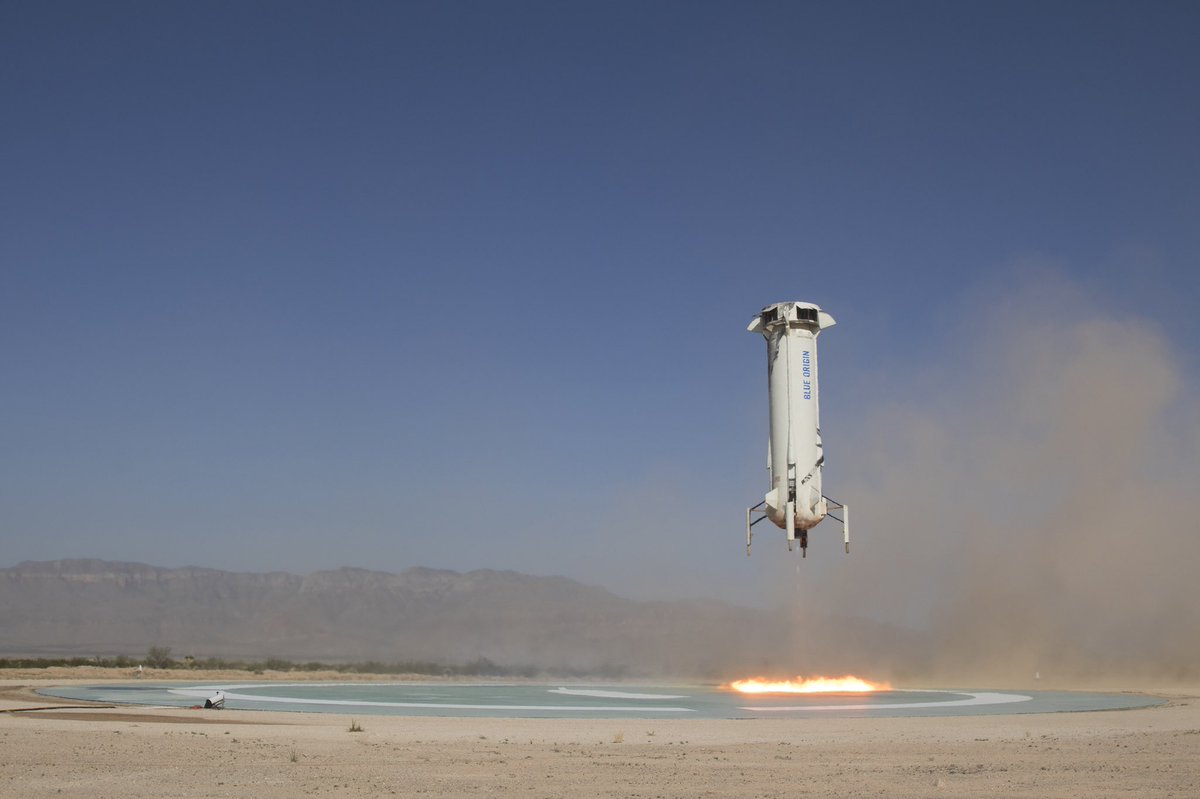Blue Origin is a step closer to taking space tourists after it landed its rocket again

It’s part of the company’s preparations to start flying humans later this year.
The mission: The uncrewed flight took off from a facility in west Texas on May 2, 2019. It’s the 11th test flight and the fifth time this specific reusable rocket has flown to space and back. It flew 38 payloads, including science experiments for schools, universities, and government agencies.
The grand plan: Blue Origin, founded by Amazon CEO Jeff Bezos, plans to eventually take tourists into space. Specifically, it will take them 62 miles (100 kilometers) up, where they can experience a few minutes of zero gravity before returning to Earth.
This year: Blue Origin hopes to start taking humans into space by the end of 2019. It’s likely that the first to try out the service will be Blue Origin employees, but it hopes paying passengers will follow. We still don’t know how much a ticket will cost, but reports say it’s likely to be around the $200,000 mark.
Sign up here to our daily newsletter The Download to get your dose of the latest must-read news from the world of emerging tech.
Deep Dive
Space
How to safely watch and photograph the total solar eclipse
The solar eclipse this Monday, April 8, will be visible to millions. Here’s how to make the most of your experience.
How scientists are using quantum squeezing to push the limits of their sensors
Fuzziness may rule the quantum realm, but it can be manipulated to our advantage.
The great commercial takeover of low Earth orbit
Axiom Space and other companies are betting they can build private structures to replace the International Space Station.
Stay connected
Get the latest updates from
MIT Technology Review
Discover special offers, top stories, upcoming events, and more.